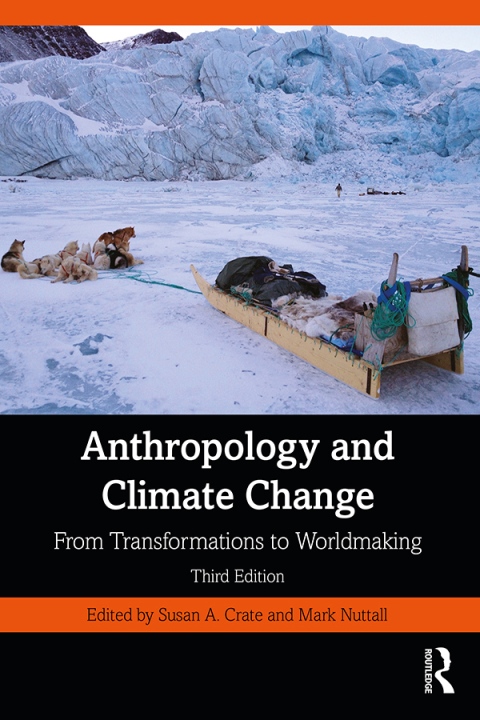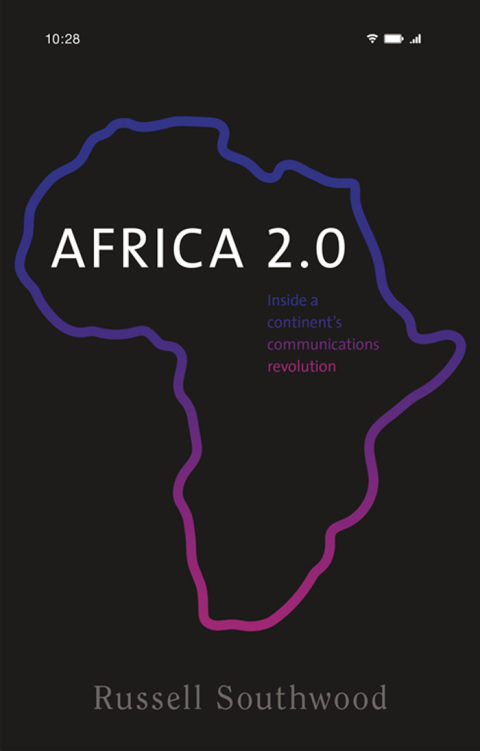Description
Efnisyfirlit
- Cover
- Half Title
- Endorsements
- Title Page
- Copyright Page
- Table of Contents
- List of Illustrations
- List of Contributors
- Introduction: From Transformations to Worldmaking
- References
- PART I Reorientations
- 1. The Arc of the Anthropocene: Deep-Time Perspectives From Environmental Archaeology
- Introduction
- Archaeology of the Anthropocene
- Historical Background
- Key Phases of Human Impact on the Environment
- Global Expansion
- Pleistocene Extinctions
- Spread of Agriculture and Pastoralism
- Island Colonization
- Archaeology of the Columbian Exchange and the Anthropocene
- Archaeological Contributions to Anthropocene Themes
- The Question of When the Anthropocene Began
- What the Anthropocene Concept Means for Our Interpretation of Relationships Between Humans and Nature
- Multispecies Archaeology
- Traditional Ecological Knowledge
- Concluding Remarks: How Can Archaeology Help Design a “Good Anthropocene”?
- References
- 2. Re-fielding Climate Change in Cultural Anthropology
- Introduction
- Reorienting How Anthropologists Approach “the Field”
- Engaged, Community-Driven Research
- Cross-Scale Research
- Team Science
- Engagement with Science Communication and Policy
- Conclusion
- References
- 3. A Picaresque Critique: The Anthropology of Disasters and Displacement in the Era of Global Warming and Pandemics
- Itinerant Rogues
- Ground Gives Way, or So Many Protean Archipelagos
- The Way Back for Strange Strangers?
- What of Familiar Pasts and Futures? Troubling Disaster Timelines
- Ten Years On
- Itinerant Rogues and Stubborn Boundaries
- Social Witnessing: The Politics of (Humanitarian and Mutual) Aid
- Storying (the Politics of) Co-Living
- Exit, in Pursuit of a Bear
- References
- 4. Understanding Arctic Melt: Reflections on Collaborative Interdisciplinary Research
- ICE-ARC and Understanding Arctic Melt
- Monitoring Sea Ice Thickness and Understanding Climate Change, Past, Present, and Future: A Community-Placed Project
- Reflections on Multidisciplinary, Interdisciplinary, and Multi-Sited Research
- Acknowledgements
- References
- 5. ‘Knowing’ Climate: Engaging Vernacular Narratives of Change
- Introduction
- A Personal Testimony
- Sakha Research that Communicates the Importance of Knowledge Systems
- What Anthropologists6 are Doing
- Closing Thoughts
- References
- PART II Worldmaking Practices
- 6. “Don’t Look Down”: Green Technologies, Climate Change, and Mining
- Climate Change and “Clean Energy” Minerals
- A (Very) Partial Planetary History of Mining
- The Porgera Gold Mine
- Legacy Mines in Colorado
- Climate Change and Mining our Way to Sustainability
- Acknowledgements
- References
- 7. Getting It Right: What Needs to be Done to Ensure First Nations’ Participation and Benefit from Large-Scale Renewable Energy Developments on Country?
- Background
- Who are We and How Did We Get Here?
- Understanding the Opportunity
- Lessons from the Extractive Industry
- The Law of the Land
- Normative Rules for Best Practice in Australia
- Where to from Here?
- Conclusion
- References
- 8. Whither the Winds of Change? Worldmaking Winds and Seasonal Disruptions in the Northern Chilean Andes
- Winds from Above and from Within
- What has been Changing?
- Whither the Winds of Change?
- Acknowledgements
- References
- 9. The Water Obliges: Climate Change and Worldmaking Practices in Peru
- Responding to Climate Change
- Water Worlding
- Ontological (Dis)encounters and Partially Connected Worlds
- Conclusion: The Challenges of Urgency and Slowing Down
- References
- 10. Climate Action with a Lagniappe: Coastal Restoration, Flood Risk Reduction, Sacred Site Protection and Tribal Communities’ Resilience
- The Structural Violence Embedded in Agency Disaster Responses
- Place Context
- Community-Driven Actions
- Community Resilience and Adaptive Capacity through Trusted Collaborations
- Actions with a Lagniappe (Extra Value) – A Broad and Inclusive Look
- Acknowledgments
- References
- 11. Climate Change as Colonial Echo in the Canadian Arctic
- Encountering Collapse
- Arctic and Other Crashes
- Echoes of Collapse and Renewal
- Echoes and Expectations
- Acknowledgements
- References
- 12. On New Ground: Tracing Human–Muskox Reconfigurations in Greenland
- Introduction
- Muskoxen, Humans, and their Mutual Worldmaking Practices in Greenland
- Ittoqqortoormiit: Endangerments, Relocations, and Layers of Uncertainty
- Kangerlussuaq: Muskoxen and Humans on New Grounds
- Grounds and Slippages: Human–Muskox Uncertainties in Climate Pasts, Presents, and Futures
- Acknowledgements
- References
- Unpublished sources
- 13. The Disappearing Free Reindeer: Unexpected Consequences of Climate Change for Fennoscandian Reindeer Herding
- Introduction
- Context
- Meet the Reindeer and Reindeer Husbandry
- Multiple Stressors: Climate Change, Encroachments from Human Activities and Infrastructure, and Predators
- Supplementary Feeding
- Supplementary Feeding as a New Worldmaking Practice: Discussion and Analysis
- Time
- Money
- Knowledge
- Concluding Reflections: The Ongoing Worldmaking of Sámi Reindeer Herding
- Acknowledgements
- References
- 14. Sakha and Alaas: Place Attachment and Cultural Identity in a Time of Climate Change
- “Being There” with Sakha in the Anthropocene
- Alaas and their Meaning
- Sacred Encounters
- The Social Science Understanding
- Alaas within Natural Science Understandings
- Alaas as Sakha’s Cultural Keystone
- Anthropology and Global Change Research in the Anthropocene
- Closing Words
- Acknowledgments
- References
- 15. A Reflexive Approach to Climate Change Engagement with Sherpas from Khumbu and Pharak in Northeastern Nepal (Mount Everest Region)
- Introduction
- The Place, its Climate, and its People
- Our Approach
- Speaking of Climate Change Effects
- A Decade of Climate Change Studies
- A New Beginning
- Bibliography
- PART III Interventions
- 16. Why We Need to Pay Attention to Wealth and Inequality in Lowering Carbon Emissions
- Introduction
- Inequality on the Rise
- Defining Climate Change in the Context of Inequality
- Carbon Emissions and Wealth
- The Environmental Impact of Wealth
- Green Facades
- Reducing Carbon Emissions and Inequality
- Carbon-Shaming and Activism
- Carbon as a Commodity
- References
- 17. Decarbonization and Making the Energy Future in the Welsh Underlands
- Introduction
- HyNet North West
- The Carbon Dioxide Emissions Pipeline Route
- Local Views about the Pipeline
- Worldmaking and the Underground
- Conclusions
- Acknowledgement
- References
- 18. Representation and Luck: Reflections on Climate and Collaboration in Shishmaref, Alaska
- Introduction of Authors and Why we take Pictures and Write
- Methods
- Climate Change in Shishmaref
- Representation and Ventriloquism in Shishmaref
- Beauty Comes First
- Luck as Climate Change and Representational Solutions
- References
- 19. Agricultural Intensification in Northern Burkina Faso: Smallholder Adaptation to Climate Change
- Research Context
- The Northern Central Plateau
- Droughts, Desiccation, and Desertification
- Soil and Water Conservation (SWC)
- Spatial Comparison between Kongoussi and Northern Boulsa
- Analysis of Spatial Environmental Data
- Conclusion
- References
- 20. Anthropological Contributions to IPCC Assessment Work
- Introduction
- Anthropologists and the IPCC
- Co-production of Knowledge in the IPCC
- Role of Indigenous Knowledge Systems
- Influence of Anthropologists on IPCC Concepts
- Gaps in IPCC Work
- The Anthropology of Knowledge Uptake
- Conclusions
- References
- 21. Negotiating Science and Policy in International Climate Assessments
- Introduction
- Scientific and Diplomatic Spaces as Sites of Cultural Production
- Negotiating Tactics at the Intergovernmental Panel on Climate Change
- Conclusion
- References
- 22. From “Lone Ranger” to Team Player: The Role of Anthropology in Training a New Generation of Climate Adaptation Professionals
- Introduction
- Community Climate Adaptation: Coming to Terms with a New Field
- The Value of an Anthropological Approach in a Transdisciplinary Endeavor
- “Lehr und Kunst”: Project-Based Learning and Community Collaboration
- Learning Outcomes and Program Elements for the CCA Graduate Program
- Critical Elements for an Emerging Field
- References
- 23. Climate Counter-Hegemony: Crafting an Anthropological Climate Politics Through Student–Faculty Collaborations in the Classroom and on the Streets
- Introduction: World Breaking, Worldmaking
- Hegemony and the Common Sense of an Extractive University
- Climate Counter-Hegemony: Tactics and Experiences
- Tactic 1: Building Skills, Subjectivities, and On-Ramps for Climate Movement Work
- Tactic 2: Unveiling the Inevitable Failure of University Leadership
- Tactic 3: Imagining a Climate-Just University and Building New Institutions
- Tactic 4: Addressing Material Constraints to Activism
- Lessons for the Roads Ahead
- A Note of Gratitude
- References
- 24. Caiyugluku: Pulling from Within to Meet the Challenges in a Rapidly Changing Arctic
- Introduction
- Setting the Context
- Centering Yup’ik and St. Lawrence Island Yupik Relational Values
- Aruqulluki (Sharing)
- Takaq (Respect)
- Aulukluki (Responsibility)
- The Bering Sea Elders Group (BSEG)
- Discussion
- Conclusion
- References
- 25. Culture and Heritage in Climate Conversations: Reflections on Connecting Culture, Heritage, and Climate Change
- Introduction
- The Need for a Broader Conversation on Culture, Heritage, and Climate Change
- Participation and Inclusion to Expand the Conversation
- Building Capacity Through Meaningful Recognition and Validation Across Knowledge Systems and Experiences
- Underlying Issues in Culture, Heritage, and Climate Change
- While Progress is Apparent, Continuing Efforts are Needed for Working Together Across Disciplines and Knowledge Systems
- The Need to Embed the Heritage Sector into Climate Change Decision-Making
- Final Remarks
- Acknowledgements
- References
- Epilogue
- References
- Index







Reviews
There are no reviews yet.